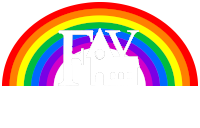Please click on the link to see our STEM Ambassadors Certificate. STEM CERTIFICATE
The Early Years Foundation Stage Document is used to plan for children’s developmental and learning needs. It has four themes which are: A Unique Child; Positive Relationships; Enabling Environments and Learning and Development.
Our early years curriculum is constantly changing as we respond to our children’s individual needs and interests. We provide a balance between adult-led and child initiated experiences inside and outside. Opportunities are planned for children to be supported through play and exploration opportunities, adult guided focus sessions and short carpet lessons. The ways in which the children learn, the Characteristics of Effective Learning, underpin all that we do in Reception.
We support the children in thinking creatively, having their own ideas, and developing a sense of willingness to ‘have a go’. Play is essential for children’s development and through play and exploration the children are encouraged to develop skills in determination, concentration and a good attitude to learning. Adults observe the children closely as they play, and join in sensitively to support them and move their learning on, extending their language and thinking, and helping them to develop skills in all seven areas of learning.
There are seven areas of learning and development that make up the curriculum in the early years.
There are the three prime areas of Communication and Language, Physical Development and Personal, Social and Emotional Development and the three specific areas of Literacy, Numeracy, Understanding the World and Expressive Arts and Design. All areas of learning and development are important and inter-connected. The three prime areas are particularly crucial for igniting children’s curiosity and enthusiasm for learning, and for building their capacity to learn, form relationships and thrive.
Prime Areas
Communication and Language; Children are given opportunities to experience a rich language environment and there is emphasis on introducing them to new and exciting vocabulary. Children are encouraged to develop their confidence and skills in expressing themselves and speaking and listening in a range of situations. Value is placed on them expressing their own thoughts and ideas and taking into account the thoughts and ideas of others. Children learn to follow instructions and answer questions about their experiences and are given opportunities to explore, enjoy, learn about and use words and text in a broad range of contexts, including through stories, role play and drama.
Physical Development; This area provides children with the opportunity to develop and practise the control they have over their own bodies. It allows for them to further develop their confidence and skills in large gross motor movements such as, running, jumping and climbing. They will have the opportunity to develop their spatial awareness and co- ordination skills. They will develop mastery over large and small movements becoming confident in using a range of equipment and tools effectively. They will be encouraged to make healthy choices and develop independence in their self-care skills.
Personal, Social and Emotional Development; Children will be encouraged to feel good about themselves and others, so they are able to develop positive relationships and develop respect for others. They will be supported to become independent, excited and motivated learners. They will learn the important life skills of resilience and perseverance to reach a goal or acquire new skills and be supported to manage their feelings and to understand appropriate behaviour in different situations.
Specific Areas
Literacy; Children will be encouraged develop a love of literature in both the spoken and written form: linking letters and sounds to read and write simple words becoming early readers and writers. They will engage and play with language, stories, characters and extend their vocabulary and imagination through drama, storytelling and role play.
Mathematics; Through practical and real life play opportunities children will develop and improve their counting, use of numbers, addition and subtraction, shape, space and measures. They will develop an understanding of maths through stories, songs, games and imaginative play, creating resilient mathematicians.
Understanding the World; Children will have the opportunity through a variety of exciting themes and topics to make sense of the world in which they live and how they can influence it. Learning about their own lives and how they have changed in their own lifetime; making sense of the physical world, the local community, finding out about people, places, technology and the environment.
Expressive arts and design: Children will have the opportunity to explore and play with a wide range of media and materials and will be encouraged to share their thoughts, ideas and feelings through a variety of activities in art, music, movement, dance, role-play, and design and technology.
Every morning the children take part in a phonics lesson. These last for approximately half an hour during which the children work in small groups depending on which phase they are on. We follow the RWI (Read, Write Inc) scheme for teaching phonics. More details can be found on the RWI website by following the link:
RWI Programmes for Nursery Phonics
We assess children by watching them. Children are observed at play – a time when we take photos. Watching what children are enjoying and what they are learning helps us to plan for their next steps. This system means we can provide activities that we know children will choose to get involved in.
We could see that the girls were interested in singing and performing. We made a Britain’s Got Talent box so that the children could plan little shows. In the box there were programmes and application forms for them to fill in. This gave the children a purpose for writing as well as singing and dancing. It helped to make their play even more focused.


